Have you decided to use WordPress to power your blog?
If so, you are in good company. From CNN to the National Football League to TechCrunch, many big name companies use the responsive WordPress giant, because of its flexibility, ease of use, WordPress security, and availability of plugins.
It is one thing to add the WordPress installation. It is another thing entirely to learn WordPress and how it works and to know the steps that you can take to make it work in your favor.
Answer this question before you start a blog and launch it: what process will you follow to learn WordPress?
If you don’t have any ideas in mind, you have come to the right place to find out all about learning WordPress.
In this post, I am going to discuss 11 of the best ways to learn about the WordPress site, after launching your blog. Of course, you can also use these resources before launch, ensuring that you are ready to hit the ground running, leaving you with more time to focus on your social media campaigns and actually creating those essential blog posts.
With that in mind, it’s time to get started with this quick and easy online course.
1. Beginner’s Guide for WordPress (WPBeginner)
As the name suggests, WPBeginner is all about helping people who are new to the WordPress site. If you fit this mold, you’ll definitely want to read this guide from start to finish.
There are eight sections, each one targeting a different topic of importance. These include:
- Self Hosted WordPress.org vs. Free WordPress.com
- How to Pick the Right Domain Name
- How to Choose the Best WordPress Web Host
- How to get the WordPress Installation on Your Site
- How to Select a Perfect WordPress Theme
- Recommended WordPress Plugins
- How to Install and Setup Google Analytics in WordPress
- Setup a Professional Email Address for Your WordPress Blog
If you’ve set up your WordPress blog and picked your WordPress theme, you can skip over the first few sections. Jump right to the information on WordPress plugins and Google Analytics, as both of these two topics are important to your success with a responsive WordPress site.
There is a lot to like about this guide, but it’s beginner-oriented approach for learning WordPress is the biggest benefit. For those who don’t know much about this content management system (CMS), you have found the guide that will point you in the right direction.
2. WordPress Quick Start Guide (WordPress.org)
Coming from WordPress itself, you can trust that the information in this online course or guide is 100 percent accurate. Furthermore, it is extremely helpful if you are interested in finding out more about learning WordPress and how it works.
Since it’s a quick start guide, you’ll find everything you are looking for and nothing that you don’t need.
The “Create Content” section is among my favorites. This includes information on how to add blog posts and content to your WordPress site, broken down into five sections:
- Write a Post
- Create a Page
- Make Categories for Your Posts
- Add Tags to Your Posts
- Edit a Page or Post
Some people may find this basic, but if you are new and still trying to learn WordPress, it’s this type of information that will put you on the right track.
If you make your way through this detailed guide, you’ll come out the other side with a clear understanding of how responsive WordPress can be for your needs.
Tip: keep this online course nearby, for future reference, as you never know when you’ll need a little bit of advice.
3. WordPress SEO (Yoast)
Once you’ve created a WordPress site, it goes without saying that you’ll soon think about search engine optimization (SEO). In other words, you want to know what you can do to push your site to the top of page one for your primary keywords.
This guide by Yoast will give you the push you that need. It’s described as follows:
“The definitive guide to higher rankings for WordPress sites.”
If that’s what you want – and it should be – you have come to the right place.
In this guide, you’ll find information and advice within nine primary categories:
- Basic WordPress SEO
- Template optimization
- Advanced WordPress SEO and duplicate content
- A site structure for high rankings
- Conversion optimization
- Comment optimization
- Off site blog SEO
- Measuring results
- Conclusions on WordPress SEO
It’ll take you some time to make your way through this guide. You’ll probably have to revisit some of the online course sections as you build your blog and start to learn WordPress.
If you want to do things right, read this guide before you get too far into the development of your blog. This gives you the opportunity to take the right approach, the first time around.
I particularly enjoy the section titled, “ A site structure for high rankings.” This is something many people overlook, as they are so focused on creating high quality blog posts and content and building links.
SEO for a WordPress site is not the same as for a static website. Let this SEO tutorial teach you a thing or two.
4. WordPress Essential Training (Lynda)
Are you the type of person who learns best through video training?
If this sounds like you, it’s time to learn more about this Lynda video tutorial online course. Rather than work your way through a content guide, it allows you to learn more about WordPress by watching a variety of videos tutorials.
Created for beginners, it has 68,283 viewers, at the time that I’m publishing this post.
The Table of Contents gives a basic overview of what the online course has to offer, but you can’t truly understand how advanced it is until you sit down and soak up a few of the video tutorials.
Some of the many sections of the course include:
- Getting to Know WordPress
- Getting Started / Learning WordPress
- Creating Posts
- Adding Images and Media
- Creating Pages
- Managing Content
- Changing the Appearance of Your WordPress Site
- Extending WordPress Plugins
- Users and User Profiles
- Configuring Settings and WordPress Security
- Getting Readers
There is a lot of information to take in. The best part of this video tutorial online course is the in-depth approach. Each section is long enough to provide you with all of the knowledge that you require.
For example, there is more than 45 minutes of video on how to change the appearance of your site. This is great value for online learning.
If you learn best via video, follow this online course from start to finish. You won’t disappointed.
5. WP101
Rather than attempt to explain what this tool has to offer, I’m going to share the introduction from the homepage:
“Who’s got time to read boring tech books? Our easy WordPress tutorial videos will teach you all the basics in about an hour! Continue learning with more advanced tutorials, plus get answers to your WordPress questions in our members-only forum.”
There’s only three sentences there, but it’s a lot to take in.
First off, notice that these video tutorials will teach you the basics of how to get the most responsive WordPress experience in approximately one hour. Talk about being efficient!
Second, WP101 doesn’t stop there. If you want to learn more, there are advanced online learning tutorials to push you forward.
I like online learning systems that have something to offer people of all experience levels, and that’s exactly what you get with this educational institution. You can start out slow learning the basics about WordPress installation and WordPress themes, build from there and soon realize that you are closing in on professional status.
6. Get the Most from WordPress.com (WordPress.com)
Another guide from the official source, it does exactly what it says.
If you want to get the most from your WordPress blog, you need to follow this guide, word for word, from beginning to end.
This isn’t an online learning guide for people who have been using WordPress.com for years. It’s more for those who are looking to better understand the finer nuances, such as how this CMS works and the ways it can benefit them.
My favorite part of this guide is the “Get Lingo” section. This glossary of WordPress terms will help you better understand what you are seeing when you log in as WordPress admin on your dashboard.
Even the most experienced WordPress users run into issues every now and again, whether its with WordPress security or WordPress themes, how responsive WordPress is being, or general issues with WordPress plugins. Sometimes, all it takes is the understanding of a particular term in order to continue forward.
If you can’t trust WordPress.com to provide you with guidance, who can you trust?
7. WordPress for Beginners – Master WordPress Quickly (Udemy)
Another video tutorial for online learning, this one is tops on the Udemy platform. As an educational institution with more than 7,800 enrolled students, you won’t be alone if you decide to turn here for WordPress assistance.
There is a lot to like about this course, but here are some of the primary points of interest:
- 74 lectures
- 8.5 hours of video tutorials
- No prior knowledge of WordPress needed
- Designed to help you build a fully functional WordPress site
I don’t want to bog you down by listing each of the 74 lectures, so I’ll share a few of my favorites:
- The WYSIWYG Editor
- Installing Premium WordPress Plugins
- Introduction to WordPress Security
- A note about the Google Keyword Planner
- Creating a Child Theme
Maybe some of these sections hit home. Maybe they don’t. With this online course, you can pick and choose what you watch, although I suggest you start at the beginning and take in every minute of video that is available.
8. Build eCommerce site with WordPress (Udemy)
Some people use WordPress to build a static website or blog. Others use it for something much more powerful, such as the structure for an ecommerce website.
If you want to sell products online, it doesn’t mean you can’t use WordPress.com. With the right approach, you can use WordPress.com to meet all of your eCommerce needs.
Since this is easier said than done, you may want to join the approximately 10,000 students who are already enrolled in this educational institution.
With a near perfect rating, you can take on this online learning video course with confidence. Add in the fact that it’s offered through Udemy, so you know that you’ll be presented with an enjoyable and efficient experience.
There are 80 lectures that make up approximately seven hours of video. Yes, this is a long course. And yes, it’ll probably take you longer than 7 hours to complete, since you’ll stop to take notes. Even so, it’s worth your time. The more you know about it, the better your WordPress security will be and the more of a responsive WordPress experience you can have.
My favorite section is “Get your hands DIRTY!” This is when you leave the online learning and get down to business. In other words, it’s time to take action.
There are many ways to build an eCommerce website, but you should always consider the benefits of WordPress.
9. WP Apprentice
Continuing with the video training approach, WP Apprentice is another option. For those who need help managing their WordPress website, this educational institution is as good an answer as you’ll find. And here’s why:
- It gives you all of the answers that you need, without having to search Google.
- You can leave your outdated books and guides in the past.
- Access to a variety of step-by-step video tutorials.
- Lessons are kept current and updated to coincide with the latest version of WordPress.
WordPress is so easy to use that anyone can create a website and add some content. What some people don’t realize, especially as they are getting started, is that managing this type of site can be confusing and time consuming as it grows. There can be a lot to consider; from WordPress security to WordPress themes, WordPress plugins, and even things like social media and adapting your WordPress site for mobile devices.
WP Apprentice helps remove all of the confusion by providing video tutorials for every type of person.
For instance, the Website Blueprint course is designed for business owners and entrepreneurs. This particular course covers the following:
- Getting Started
- Planning Your WordPress Site
- Site Design and WordPress themes
- Building Your Site
- Add Business Features
- Site Maintenance and WordPress Security
As you can see, no matter what comes up as you launch your WordPress site, WP Apprentice will have you covered.
10. Learn How to Use WordPress (First Site Guide)
The name says it all: with this guide, you’ll learn how to use WordPress.
Even though this sounds basic, it goes well beyond the nuts and bolts. The details of the guide are refreshing, as it never leaves you hanging and searching for more guidance.
While the guide itself is full of useful information, there is one thing that allows it to stand out in the crowd: the demo videos.
As you make your way through the online learning content, each section has its own “quick demo.” This allows you to visualize what you are reading.
Better yet, the videos are more in-depth than you may expect from something that’s only a minute or two in length.
This is the type of guide that you want to keep by your side as you continue to use WordPress. You’ll find yourself seeking advice and watching the video tutorials often.
Tip: read the other chapters of the guide, such as, “Creating blog content,” as these will teach you how to achieve greater success.
11. Best Practices for Managing Your WordPress Site: The Ultimate Guide (WPMU DEV)
There are a lot of people out there who think creating a website is all that they need to in order to reach their audience.
I also speak with many people who believe that managing a responsive WordPress website is a piece of cake. They don’t truly realize what goes into keeping their blog updated and running smoothly.
This guide, from the educational institution WPMU DEV, provides some of the best practices for managing a WordPress site. It focuses on five key areas, including:
- Content
- Code
- Performance
- Backups
- Security
This isn’t one of those “thin” guides that provide basic advice and then hopes that you figure out the rest. It’s in-depth, full of professional guidance and meant to teach you exactly what you are looking for.
A great example of this is the section on having a responsive WordPress experience and optimizing your site’s speed. Most people don’t even think about this as they are starting a blog. They are simply happy to have something live and visible to the world.
But, if you want to manage your site with success and reach all of your goals, you can’t afford to overlook these finer details.
WPMU DEV has more than 400,000 members, many of whom got their start by reading this guide. If you need help with any aspect of managing a WordPress site, you don’t have to continue your search. You can stop here and dig in.
Conclusion
The nice thing about relying on WordPress is that there is always help to be had. In addition to the online learning resources above, there are tools that you can implement to boost traffic and WordPress plugins that are designed to help you create high quality content.
If you want to make the most of your WordPress blog, now’s the time to increase your knowledge base. Even if you only use one of the techniques or visit one of the educational institutions above, you’ll find yourself in a better place.
Do you have any other suggestions on how to learn WordPress? Share your ideas in the comment section below.

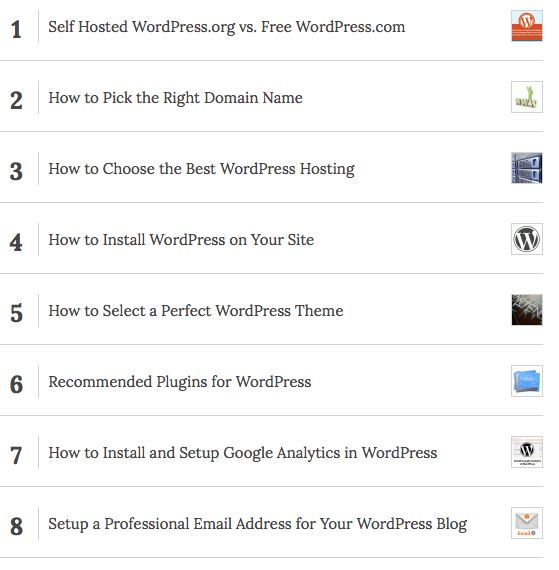
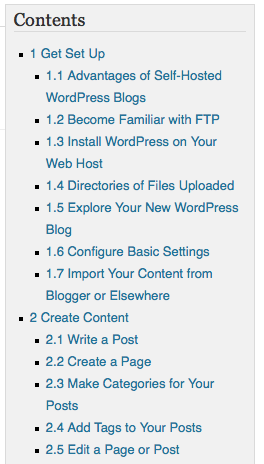
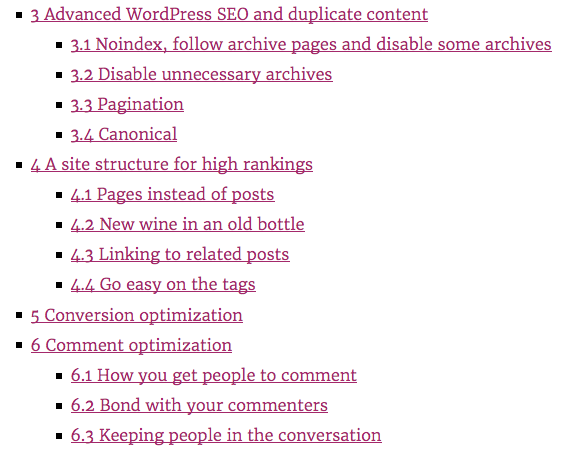
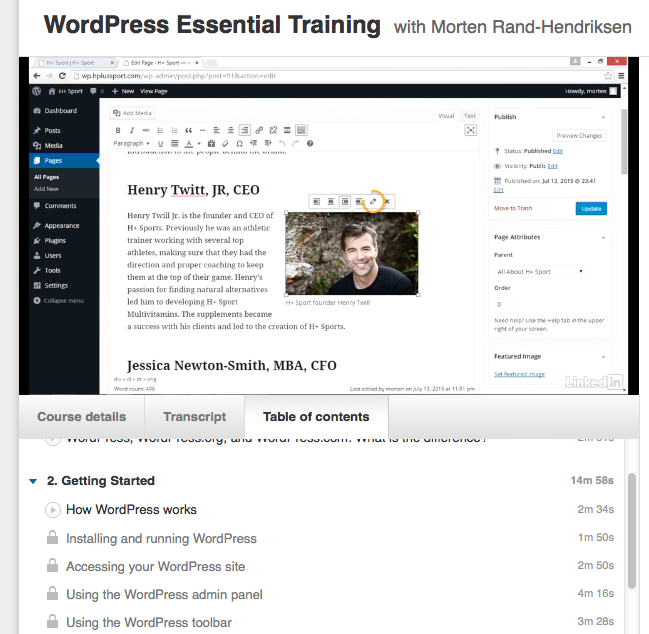
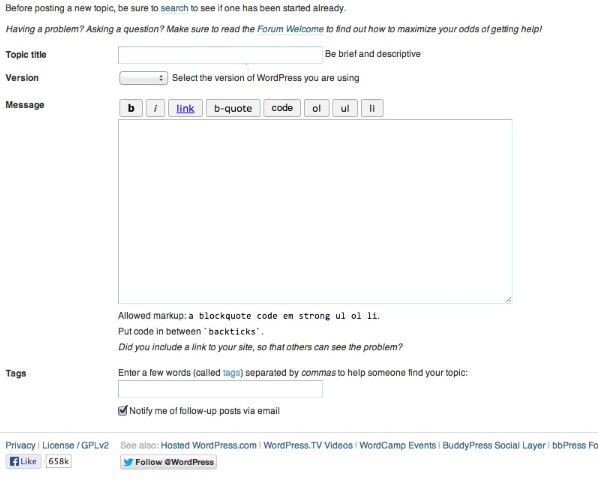
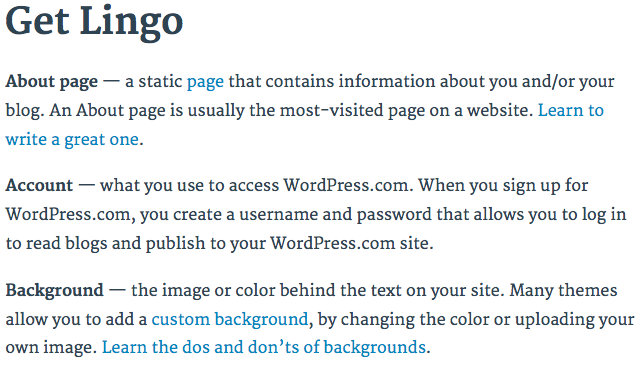
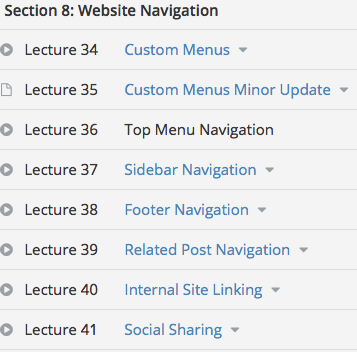
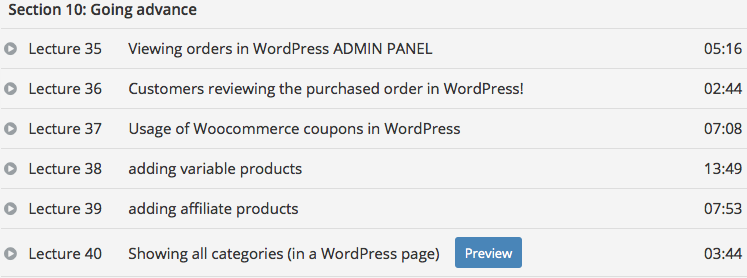
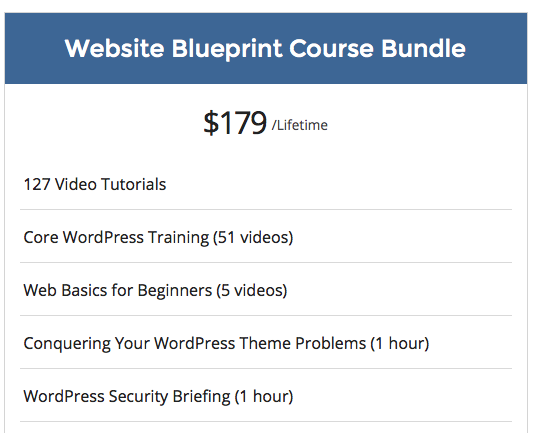
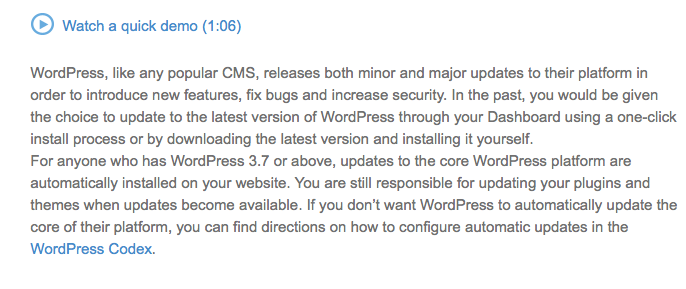

Comments (75)